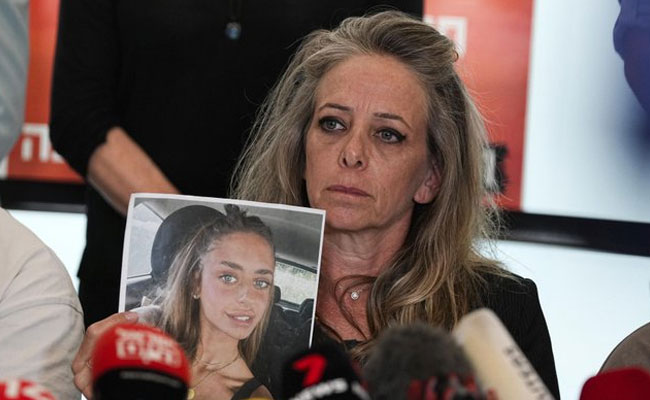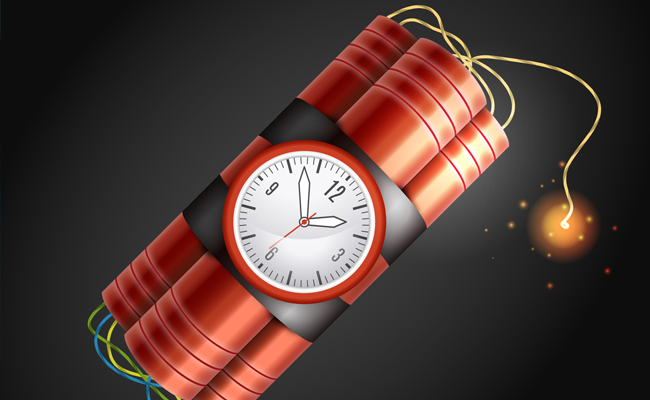Jerusalem (AP) The mother of a young Israeli woman held by Hamas appealed for her release on Tuesday, calling the seizure of some 200 hostages by the Palestinian militant group "a crime against humanity."
A day earlier, Hamas' military wing released a video showing a dazed Mia Schem, 21, having her arm wrapped with bandages. It was the first sign of life from any of the hostages since Gaza-based gunmen smashed through border fortifications on October 7, killing more than 1,400 people in Israel.
"I didn't know if she's dead or alive until yesterday," her mother, Keren Schem, said at a news conference. "All I knew is that she might be kidnapped. I'm begging the world to bring my baby back home. She only went to a party, to a festival party to have some fun. Now she's in Gaza."
Mia Schem was seized at a desert rave just over the border from Gaza that became the site of what is believed to be the worst civilian massacre in Israeli history. At least 260 people were gunned down as heavily armed militants in trucks and on motorcycles barreled through the vast field on Kibbutz Reim where thousands had gathered for a carefree night of electronic music.
Civilians and soldiers, young and old, Israelis and non-Israelis were among at least 199 people taken into captivity from Reim and other areas in southern Israel.
"This is a crime against humanity and we should all gather and stop this terror and bring everybody back home," Keren Schem said.
The plight of the hostages has dominated Israel's media since the attack. The seizure of so many civilian hostages is unprecedented in Israel's history, and interviews with relatives are broadcast throughout the day.
The Israeli military said Schem's family was told of her abduction last week, and officials dismissed the video as propaganda designed to make Hamas look humane. Israeli officials have vowed to maintain a siege on Gaza until the hostages are released.
Mia Schem has dual nationality with France, and on Tuesday, French President Emmanuel Macron decried the hostage-taking.
"To have taken hostages, both civilian and military, of all nationalities and to use blackmail at this time is absolutely odious and unacceptable," Macron said at a news conference in Albania.
France, he added, was working with Israeli authorities and with Hamas through third parties to win the release of French and other hostages.
Let the Truth be known. If you read VB and like VB, please be a VB Supporter and Help us deliver the Truth to one and all.
Shivamogga: A 17-year-old student from Kamakshi Street in the city, Prem Kumar, died of drowning while swimming in River Tunga in Pillangiri village of the taluk recently.
Prem, who was studying in II PUC at DVS College, was visiting the temple in Pillangiri with his friends and got into the river for a swim, when he drowned in the waters of the river.
The youngster’s body has been sent to the mortuary of the McGann Hospital in Shivamogga to conduct a post-mortem examination.
Shivamogga Rural Police visited the spot and held an inspection.





_vb_04.jpeg)